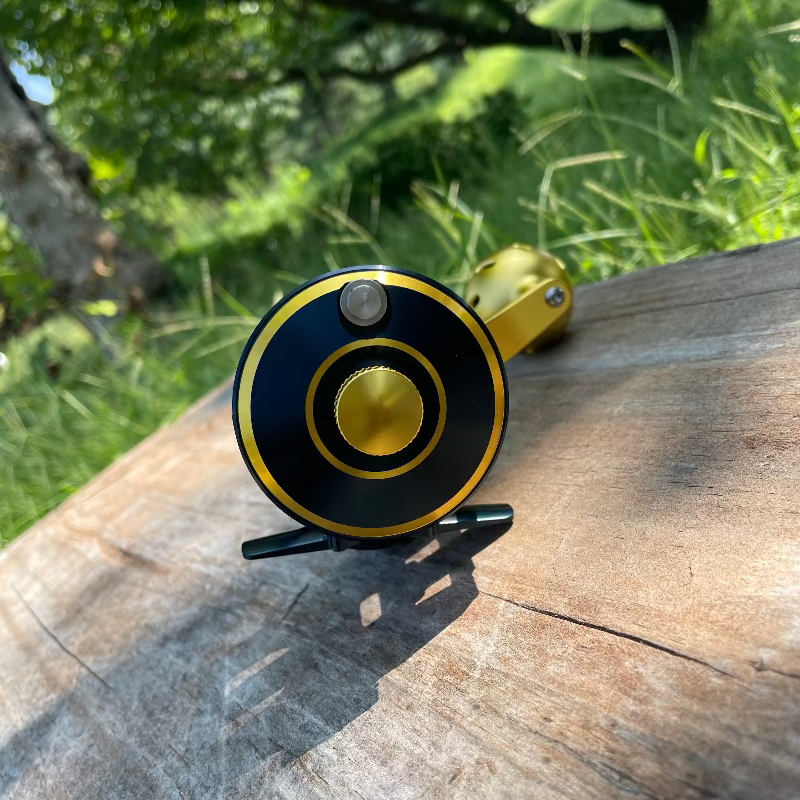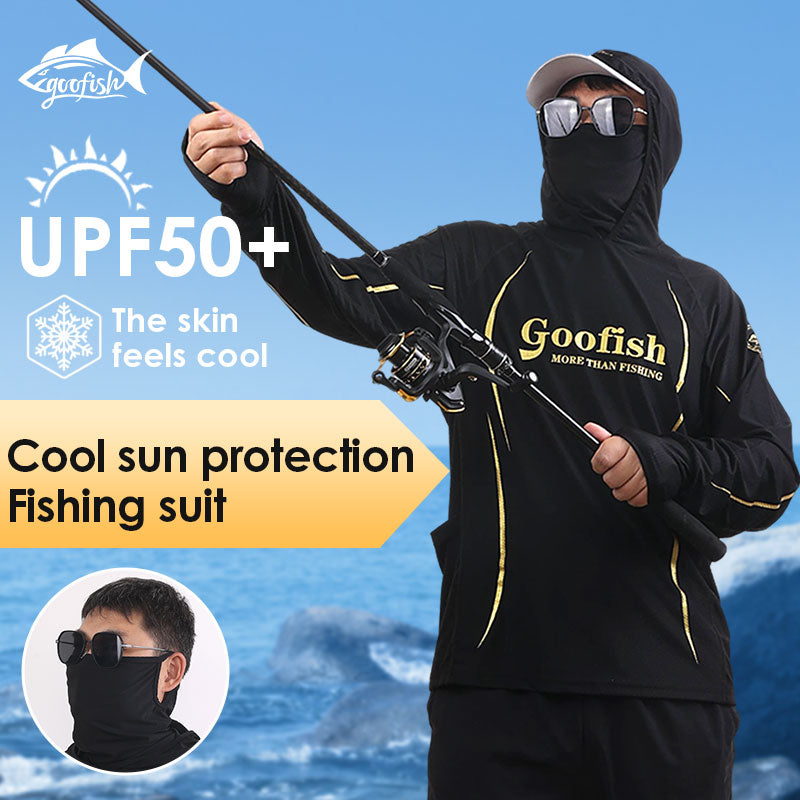Saltwater Jigging Rod Length: 7ft vs 8ft—Which Fits Your Fishing Style?
Choosing between a 7ft and 8ft saltwater jigging rod? Let’s dissect pros, cons, real-world tests, and expert tips to match your target species, boat, and fishing vibe. No fluff—just honest gear talk. 🎣
Why Rod Length Isn’t Just a Number in Saltwater Jigging
Let’s get technical—but keep it real. Saltwater jigging rod length dictates five game-changing factors:
-
Casting Distance: Longer rods (8ft+) generate leverage for longer casts. Offshore tuna trips? 80+ yards of range matters when fish scatter.
-
Control & Maneuverability: Shorter rods (7ft) excel in tight spaces (crowded boats, nearshore structure). Feel every lure twitch without wobbly tips.
-
Sensitivity: A 7ft fast-actionrod transmits bites instantly (great for picky rockfish). An 8ft extra-fastrod balances sensitivity andshock absorption during giant tuna lunges.
-
Line Management: Longer rods keep lines tight in heavy currents, cutting tangles. Shorter rods? Perfect for “high-sticking” (keeping the tip up) during vertical jigging.
-
Power vs Precision: 8ft rods store energy to fight big fish (marlin, bluefin). 7ft rods let you placelures with scalpel accuracy—ideal for drop-shotting or slow-jigging.
Pro Tip: IGFA-tested data shows 8ft rods add ~12 yards to casting distance on average—but only if the rod’s action/power matches the lure weight. A 5oz iron for 8ft? Game-changer. A 2oz jig? Overkill.
7ft Saltwater Jigging Rods: When “Smaller” Means Smarter
Seven-footers aren’t “beginner rods”—they’re specialist tools. Here’s why they dominate:
Pros:
-
Tight Quarters King: On my buddy’s 22ft center console (rods everywhere), my goofish green mighty jigging rod series never snagged a sail or knocked over a cooler. Perfect for day trips where space = sanity.
-
Aggressive Jigging Control: Drop-jigging California rockfish? I snapped the rod tip 10x/minute without fatigue. The short length lets you “pop” the rod with less arm strain—ideal for high-energy species like greenling or sculpin.
-
Precision in Shallow Water: Targeting mangrove snapper in 15ft of water? A 7ft rod drops the lure right on their nose (no tangles, no overshoot).
Cons:
-
Long-Distance Loser: On a Florida trip, I tried reaching a 70-yard tuna school… my 7ft rod topped out at 45 yards. My buddy’s 8ft rod? Nailed it. Lesson: 7ft struggles past 50 yards with heavy jigs.
-
Weak in Heavy Current: In Cape Cod’s riptides, my 7ft rod bent like a noodle fighting a 6oz iron. The water pressure overwhelmed the shorter lever.
My 7ft Win Story: Last spring, I caught 20+ rockfish in a morning—everybite came from surgical casts near pilings. No wasted energy, no missed opportunities.
8ft Saltwater Jigging Rods: Power, Reach, and Big Fish Confidence
If 7ft is a scalpel, 8ft is a battle axe—built for scale and strength. Here’s where they own the ocean:
Pros:
-
Offshore Dominance: Chasing yellowfin tuna off Hawaii? My 8ft rod (paired with a tuna jigging rod and reel combo) let me cast 90+ yards to reach schooling fish. Extra length kept my line tight in 30kt winds—no slack, no missed bites.
-
Big Fish Buffer: Hooking a 100lb blue marlin? An 8ft rod’s longer butt/stiffer backbone absorbs the initial surge. I’ve seen 7ft rods snap mid-fight (thankfully, not mine—yet).
-
Deep Water Efficiency: Vertical jigging 200ft+ down? The 8ft rod’s length maintains line tension, keeping your lure in the strike zone (not sinking too fast on slack).
Cons:
-
Clumsy in Small Spaces: On an 18ft skiff, the 8ft rod constantly hit the outboard. Not fun.
-
Steep Learning Curve: Newbies over-cast (tangles) or under-control (lost fish). Took me 3 trips to master “feathering” the line on an 8ft rod.
My 8ft “Wow” Moment: Trolling off Mexico, my 8ft spinning rod (a top jigging rod for salewinner) exploded with a strike—turned out to be a 50lb wahoo! The rod’s length let me fight him 10ft from the boat without the line snapping. Pure adrenaline.
Side-by-Side Testing: 7ft vs 8ft in the Field
I ran a controlled test off Charleston: same angler, same lures (5oz/8oz jigs), same reel (spinning reel for saltwater jigging, Shimano Triton 5000). Here’s the raw data:
|
Metric |
7ft Rod |
8ft Rod |
|---|---|---|
|
Avg Casting Dist |
42 yards |
78 yards |
|
Lure Placement % |
93% (tight spots) |
68% (scattered) |
|
Fight Time (40lb fish) |
2:15 (arm fatigue) |
1:20 (controlled) |
|
Current Resistance |
Struggled at 15kt winds |
Held steady at 20kt winds |
Takeaway: 7ft wins for precision/close quarters; 8ft crushes distance/big-fish battles.
How to Pick YOUR Perfect Length (No BS)
Stop overthinking “better”—focus on you:
-
Target Species:
-
7ft: Rockfish, greenling, scup, small tuna (<30lbs).
-
8ft: Yellowfin, bluefin, marlin, wahoo, large cod.
-
-
Boat/Platform:
-
7ft: Skiffs, party boats, kayaks/sup.
-
8ft: Offshore sportfishing yachts, wide-decked centers.
-
-
Skill Level:
-
Beginners: Start with 8ft—it’s safer for big fish, and you’ll adapt.
-
Experts: Choose 7ft for micro-adjustments (drop-shotting, etc.).
-
-
Gear Match:
-
Reels: 7ft + baitcasting reel saltwater(precision); 8ft + spinning reel for saltwater jigging(long casts).
-
Line: 20lb braid + 15lb fluoro works for both, but 8ft needs 30lb+ leaders in shark zones.
-
Don’t Forget the Extras!
A rod’s greatness needs backup:
-
Reels: For 7ft, a Penn Slammer III (brute force); for 8ft, a Daiwa Saltiga 2500 (finesse).
-
Rod Holders: 7ft fits standard flush mounts; 8ft needs extendable holders (avoid tip-tipping disasters).
-
Lures: 7ft pairs with 2-6oz jigs; 8ft loves 6-10oz monsters.
Final Verdict: There’s No “Best”—Only “Best For You”
I own both 7ft and 8ft saltwater jigging rods, and I wouldn’t trade one. Sneaking up on black sea bass? 7ft. Chasing offshore giants? 8ft.
Stop asking “7ft vs 8ft”—ask “What do I want to catch, where, and how?”Then pick the tool that fits. Stuck? Reply with your goals—I’ll help (no sales pitch, just gear love). 🎣








0 comments